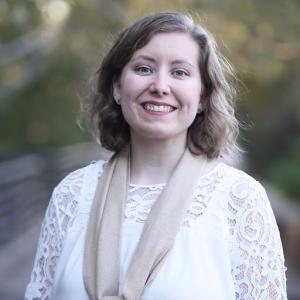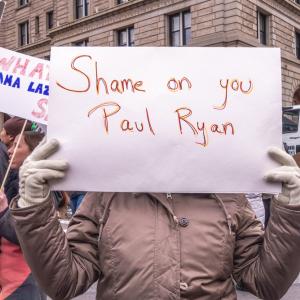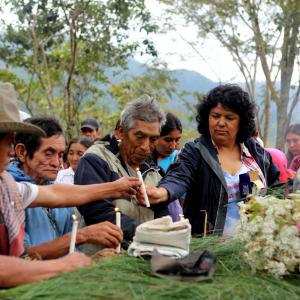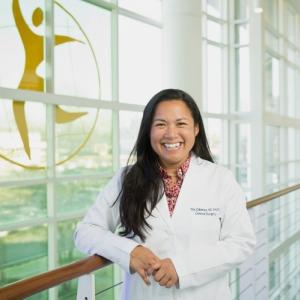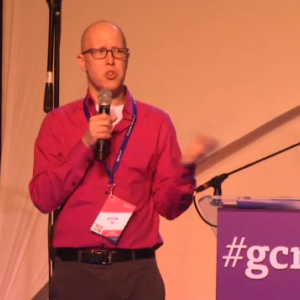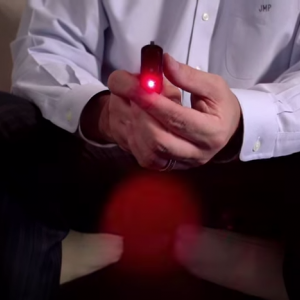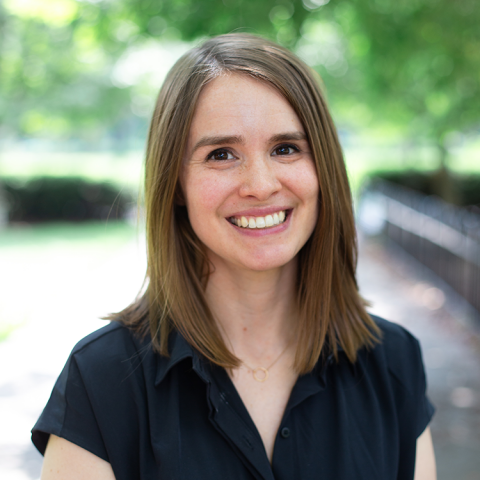
Betsy Shirley is the editor in chief of Sojourners. Her writing and multimedia work has earned awards from the Religion News Association, Associated Church Press, and Evangelical Press Association. She lives in Washington, D.C.
Betsy began working at Sojourners in 2015. Before being named editor-in-chief, Betsy served most recently as editor of sojo.net and has held editorial positions for both Sojourners’ print and online teams. She served as an editorial assistant from 2010-2011 as part of the Sojourners Fellowship Program.
Betsy earned a B.A. in English and creative writing from Butler University and a Master of Divinity from Yale Divinity School. She is a past president and current board member of the Religion News Association; she additionally serves on the board of the Religion News Foundation.
Posts By This Author
The Power of the Poor
Fifty years later, a new moral movement picks up where Martin Luther King Jr.'s final campaign left off.
But will it succeed?
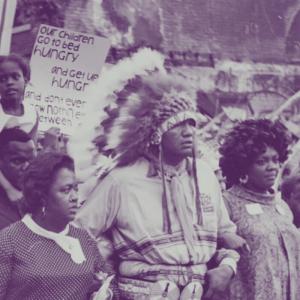
Image via poorpeoplescampaign.org / CC-BY-ND-4.0
BY MOST MEASURES, the day had been a success. On the morning of Dec. 4, 2017, nearly 300 people crammed into a small room near Washington, D.C.’s Capitol Hill to reignite the 1968 Poor People’s Campaign. Camera crews filmed while clergy, Indigenous leaders, Fight for $15, Iraq Veterans Against the War, and state groups from around the country pledged their support.
From there the leaders marched to the U.S. Capitol to deliver a letter condemning the then-looming tax bill. “Woe to those who make unjust laws,” they read from Isaiah 10, “to deprive the poor of their rights.”
Later, the same crowd—plus locals lured by a lineup featuring Sweet Honey in the Rock, Maxwell, and Van Jones—gathered at D.C.’s Howard Theater to celebrate. Faith leaders and activists who’d linked arms together in places such as Flint, Mich., Charleston, S.C., and Standing Rock in the Dakotas sipped drinks and ate free ice cream provided by Ben and Jerry’s. The overall vibe was part social-justice pep rally, part family reunion.
But Rev. William Barber II wasn’t feeling it.
While the DJ played ’80s hip-hop, Barber lumbered onto the stage unannounced. He didn’t have a microphone, so he just started yelling. The perplexed stage crew scrambled to find a working mic, but Barber was impatient. The DJ cut the music and the theater grew quiet.
“My brothers and sisters,” boomed Barber once he had a mic. “This is a Poor People’s Campaign mass meeting and concert; this is not a party.”
‘Make this nation cry’
For the next 10 minutes, Barber worked his way through the litany of injustices that he and Rev. Liz Theoharis, co-chairs of the campaign, had repeated from countless pulpits over the past year as they crisscrossed the country recruiting people for the Poor People’s Campaign: deaths caused by lack of health insurance, the rollback of voting rights, corporate drilling on Native American lands, homelessness, police violence, an unlivable minimum wage, Flint’s inability to provide its citizens with clean water, political corruption. He spoke without notes, rambling at times (“I don’t have time to be scripted because the evil that’s happening is not scripted”), but it didn’t matter; as he neared the end of his list, the mood of the room had grown somber.
Erica Lea to Become First Openly LGBTQ Lead Pastor of Mennonite Church USA
Albuquerque Mennonite Church will announce today that they have called Erica Lea to be their pastor — the first openly LGBTQ person to serve as a lead pastor in the Mennonite Church USA, a denomination that claims more than 70,000 adult members in the U.S.
Matthew Desmond Talks About the Church’s Response to Housing Instability
An interview with the Pulitzer-winning author of 'Evicted'
It’s awkward to become famous for writing about poverty. Just ask Harvard sociologist Matthew Desmond, whose book Evicted: Poverty and Profit in the American City won the 2017 Pulitzer Prize for nonfiction. For his research, Desmond spent more than a year living in trailer parks and inner-city rooming houses to document the housing struggles of eight Milwaukee families—struggles that Desmond could not forget.
“I couldn’t help but translate a bottle of wine placed in front of me at a university function or my monthly daycare bill into rent payments or bail money back in Milwaukee,” writes Desmond in Evicted. “It leaves an impression, this kind of work. Now imagine it’s your life.”
Desmond used the proceeds from Evicted to create two foundations: Just Shelter, which highlights organizations preserving affordable housing, and another to directly assist the families he writes about in the book. But Desmond doesn’t want to be lionized; he wants to reframe the conversation about poverty in America.
“When we talk about the poor, it’s almost as if we talk about them as isolated from the rest of us, as if their lives aren’t connected to ours—but they absolutely are,” Desmond told Sojourners associate editor Betsy Shirley. As he sees it, that means we all need to consider “how we receive some benefit that others don’t—and ask hard questions about the fairness of that.”
Christians Call out Paul Ryan, GOP Health Care Plan
Almost immediately after House Republicans unveiled the health care plan they hope will replace the Affordable Care Act, a number of Bible-quoting, justice-loving Christians began pointing out that the GOP's proposed replacement doesn't quite live up to Jesus's command to "heal the sick."
7 #CalvinistPickupLines You Wish You Knew in High School

Image via VGstockstudio/Shutterstock.com
In the last 24 hours, a steady stream of #CalvinistPickUpLines have leaned heavily on the five points of Calvinism — lines that surely would have made Lyman Beecher blush.
A Martyr of 'Laudato Si'?
The indigenous spirituality of assassinated activist Berta Cáceres
The deadly environment for activists is closely tied to recent Honduran history. Following the 2009 coup, in which democratically-elected Honduran president Manuel Zelaya was deposed, the new government declared Honduras “open for business” and granted profitable contracts to transnational companies looking to capitalize on Honduran natural resources — including resources on indigenous land. When leaders like Cáceres demanded the rights guaranteed to indigenous people by the U.N and the International Labor Convention — including the right to determine how indigenous land is used — it wasn’t great for business. The death threats followed.
'This Is My Church Too'
LGBTQ Christians talk about why they stay in denominations that are less than affirming.
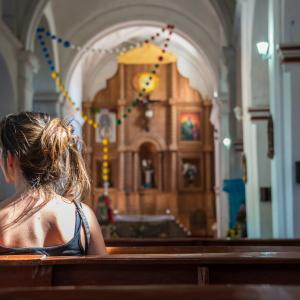
DC_Aperture / Shutterstock
IN OCTOBER 2014, at the age of 35, Ingrid Olson stood before her church of many years. “I am loved,” she told the 80 or so members of her congregation seated in the sanctuary on that Sunday evening. “I am God’s child. I am accepted—completely.” Olson listed other parts of her identity: her curiosity, athleticism, passion for music, Swedish heritage, her tendency to be passive-aggressive. “I am a sister, a daughter, a niece, a granddaughter, a friend,” she continued. Then she added something most people in the church didn’t know: “I am a Christian, lesbian woman.”
Olson is a lifelong member of the Evangelical Covenant Church (ECC), a denomination with Swedish-Pietist roots and 850 congregations in North America. Though the central identity of ECC churches is found in six “affirmations,” including the authority of scripture, the importance of missions, and the experience of personal rebirth, the ECC is not what’s known as an “affirming” church—one that encourages LGBTQ members to participate in the full life of the congregation, including marriage, church leadership, and ordination. Delegates at the 2004 ECC annual meeting voted to make binding a resolution that asserts the “biblically rooted” position on human sexuality is “heterosexual marriage, faithfulness within marriage, abstinence outside of marriage.” While the ECC might not say that being gay is a sin, it would certainly say that pursuing a same-sex relationship is out of the question.
Short Takes: Nia Zalamea
Five questions for Nia Zalamea
Nia Zalamea is a board-certified general surgeon. After five years in a traditional medical practice in rural Virginia, she joined the Church Health Center, an organization in Memphis, Tenn., that seeks to reclaim the biblical commitment to care for our bodies, minds, and spirit. She is one of two general surgeons in the U.S. who does full-time charitable work.
1. Why did you leave traditional medical practice? I went into medicine to serve; it was the one craft and skillset I could offer to an individual in front of me. But after five years, I found out that I wasn’t actually living my mission; I had put five people into bankruptcy. What I saw in rural America was that even one operation could completely derail not just one generation but multiple generations. Not just in terms of economics, but in terms of social capital, education, and everything we know that affects health and medical care.
2. What exactly does the Church Health Center do? The Church Health Center is a medical wellness home for the underserved, the uninsured, and the underinsured of Memphis. We provide surgery on a sliding scale; if someone can’t afford the surgery, it gets written off. The hospital supports the surgery in not charging the hospital fee, which is a huge chunk of the cost. So it’s not free, but the out-of-pocket cost for the patient is extremely low. We just make it affordable.
3. What are some of the barriers that prevent your patients from having access to health care? We have ongoing workshops during open enrollment to get people on to Affordable Care Act plans, but what is deemed “affordable” is not always affordable; the majority of my patients are 150 to 200 percent below the poverty line. Another barrier is access: Just because you have an insurance card doesn’t mean the doctor will see you. And this is where a lot of the injustice lies; many doctors’ offices and businesses have closed their doors to new Medicaid patients. Finally, the Affordable Care Act doesn’t cover everyone; my patients include undocumented immigrants, refugees, and patients from other countries whose children are being treated nearby at St. Jude Children’s Research Hospital.
The Gay Christian Network Conference Just Met in Houston. Here's Why That's Significant.
Less than 10 weeks after Houston voters — many persuaded by local Christian pastors — repealed a city ordinance that would have protected Houstonians from discrimination on the basis of sex, sexual orientation, and gender identity (as well as race, religion, and other traits), 1,450 people gathered in the city for the Gay Christian Network conference, the world’s largest annual event for LGBT Christians and their allies.
Short Takes: Julia de la Cruz
Five questions for Julia de la Cruz
Julia de la Cruz, originally from Mexico, is a farmworker, an organizer, and a member of the Coalition of Immokalee Workers (CIW). After forging agreements with 14 of the largest food retailers in the U.S.—including Walmart, McDonald’s, Trader Joe’s, and Chipotle—to establish labor standards and fair wages for tomato workers, CIW launched the Fair Food Program, a partnership among growers, farm workers, and retail food companies ensuring fair pay and humane working conditions on participating farms. This interview was conducted in English and Spanish, with Elena Stein, a faith organizer for Alliance for Fair Food, translating.
1. Why have farm workers in the U.S. continually faced unfair wages and inhumane working conditions? The body that was most responsible was not the growers who employ us, but actually the corporations at the very top of the supply chain who use their enormous purchasing power to demand artificially low costs of the produce we harvest. That demand results in growers cutting costs in the one place where they can: labor. And there you get the poverty and exploitation that we have experienced for decades.
2. Does it help farm workers if consumers stop purchasing products that are grown in bad working conditions? More and more we hear this idea of voting with your fork: this idea that consumers affect conditions based on how they use their dollar. But the truth is that if somebody chooses to refrain from buying a good, the impact really won’t be felt by corporations such that they’ll be forced to change their policies. But corporations will be impacted and forced to change their policies when a worker-led campaign forces them.
So we’d ask consumers to build consciousness by listening to farm workers and their experience and their analysis of the food system that nourishes each of us. The second thing we’d ask for is commitment—and that can mean a lot of things, but it definitely means getting to the street and protesting the corporations that have turned a blind eye to the abuses they have perpetuated.
'I Never Felt More Danger Than When I Kneeled to Be Ordained’
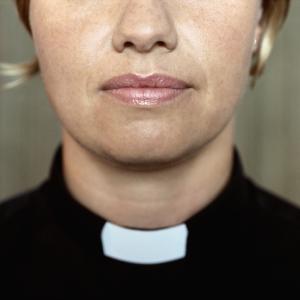
Volt Collection / Shutterstock
In an interview that aired last week, Stephen Colbert — possibly the only Catholic whose popularity rivals Pope Francis himself — admitted that one of the times the Eucharist felt “most real” to him was when he attended an Anglican service and heard a woman consecrate the bread.
“The freshness of hearing a woman say that gave the message a universality that it always should have,” said Colbert.
Today, if you walk through the red doors of an Episcopal church on Sunday morning, the person presiding over the Eucharist might be female, gay, lesbian, bisexual, or transgender. But on Sept. 12, some of the first women ordained as Episcopal priests reminded the church: it hasn’t always been that way.
Forty years ago last week — before women were allowed to be priests — four women were "irregularly" ordained as Episcopal priests before the altar of St. Stephen and the Incarnation in Washington, D.C. Closely linked with the "irregular" ordination of eleven women in Philadelphia (the “Philadelphia Eleven”) the previous year, the ordination of the Washington Four — Lee McGee Street, Alison Palmer, Betty Powell, and Diane Tickell — is seen by many as a key step in securing women’s ordination in the Episcopal Church.
We Cannot Be Silent
Faith, #Ferguson, and what comes next

Image via SSCREATIONS/Shutterstock
In honor of the one-year anniversary of Michael Brown’s death in Ferguson, Mo., Sojourners asked a variety of faith leaders — Catholics, Baptists, Muslims, agnostics, evangelicals, and humanists — to reflect: How has your faith been challenged, affirmed, or deepened by the Black Lives Matter movement? Has your theology changed? And, most importantly, what are we being called to do?
Here’s what they said.
10 Things We've Learned about Nukes Since Hiroshima
A primer for those who were in diapers during the Cold War

natrot / Shutterstock
Like many of my millennial peers, I was barely in diapers when the Cold War ended, never practiced fallout drills in school, and only recently learned what those yellow-and-black signs on old buildings meant. As a kid, if I thought about nukes at all, it was in a passive tense, World War II-history sort of way. In other words: not my problem.
But as we mark the 70th anniversary of Hiroshima and Nagasaki — when U.S. aircrafts dropped bombs on two Japanese cities, killing 135,000 people, by conservative estimates — I spent some time in the Sojourners archives trying to fill the gaps in my nuclear education. Here’s what I found.
Christian Leaders in U.S. Voice Support for #SCOTUSmarriage
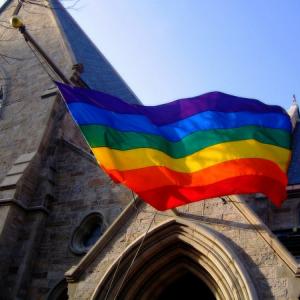
Brian Talbot/Flickr
Following the Supreme Court’s ruling today that “same-sex couples may exercise the fundamental right to marry in all States,” many wondered how Christian leaders in the U.S. would react.
But despite lingering stereotypes, many religious folk in the U.S. are now supportive of same-sex marriage. In fact, a recent survey found that “among religiously affiliated Americans, supporters today actually outnumber opponents.”
Below, read some of the responses from Christian leaders — including evangelicals, Catholics, and Protestants — who have expressed their joy and support for today’s Supreme Court ruling, as well as the work left to be done towards full LGBTQ inclusion in our nation and churches.
How One Conservative Evangelical Pastor Changed His Mind About Gun Rights
As Rev. Rob Schenck discovered, it turns out being "pro-guns" poses a challenge for those with pro-life commitments.
A lifelong anti-abortion activist, Schenck has impeccable evangelical credentials. Consequently, after the 2013 D.C. Navy Yard shooting left 13 people dead in his own neighborhood, Schenck risked losing those credentials — and possibly his career — as he publicly began to question the unholy alliance between God and guns that exists among many conservative evangelicals.
Though Schenck has already made a few public statements about his support for stricter gun control as part of his pro-life stance, he expects that The Armor of Light, released earlier this year, will cause him to lose "significant" financial support.
Not that he minds.
A New Wave
"The Evangelicals You Don't Know: Introducing the Next Generation of Christians"
FOR ANYONE who’s sick of explaining that not all evangelicals are flag-waving, Quran-burning, gay-hating, science-skeptic, anti-abortion ralliers, The Evangelicals You Don’t Know: Introducing the Next Generation of Christians provides a boost of encouragement. Written by frequent USA Todaycontributor Tom Krattenmaker, this who’s who of “new-paradigm evangelicals” explains how a growing movement of Jesus-followers are “pulling American evangelicalism out of its late 20th-century rut and turning it into the jaw-dropping, life-changing, world-altering force they believe it ought to be.”
Unlike their predecessors, these new evangelicals are characterized by a willingness to collaborate with members of other religions and no religion for the common good, warm acceptance of LGBTQ folks, a rejection of the dualistic pro-life vs. pro-choice debate, and a desire to participate in mainstream culture rather than wage war against it. All this “while lessening their devotion to Jesus by not a single jot or tittle.”
Admittedly, the book’s cover photo doesn’t quite do justice to Krattenmaker’s observations. Featuring young worshipers in a dark sanctuary with hands uplifted and eyes closed, each apparently lost in a private moment of four-chord progression praise, the cover looks more like a Hillsong worship concert circa 1998 than cutting-edge 2013 evangelicals. (If you’re unfamiliar with the four-chord progression, Google “how to write a worship song in five minutes or less.” You’re welcome.)
Vehicles for Grace
Betsy Shirley talks to author Francisco X. Stork about helping young adults ask the hard questions.
BORN IN MEXICO, Francisco X. Stork moved to Texas with his parents when he was 9. After college he studied Latin American literature at Harvard. Stork then decided to get a law degree, planning to make a living as a lawyer while writing fiction on the side. Many years later, he published the first of his five novels, The Way of the Jaguar. He continues to balance his vocation as a novelist for young adults with a "day job" as a lawyer for a Massachusetts state agency that helps develop affordable housing. Former Sojourners editorial assistant Betsy Shirley, now a student at Yale Divinity School, interviewed Stork last spring at Calvin College's Festival of Faith and Writing.
Betsy Shirley: On your blog you say that every author has a bone to which they return again and again to gnaw. What do you gnaw on?
Francisco X. Stork: The question that characters in my books keep asking themselves is, "Why am I here?" I keep coming back to trying to find some kind of meaning to life and to suffering that keeps people going. All my books center on young people who are questioning themselves in that vein. My first book had a person on death row, the second had a young man with someone out to kill him, and the third one had a boy, Marcelo, who was questioning how he could possibly live in a world of suffering. Those questions of mortality make you a little bit more aware of the preciousness of life.
Being Like Deborah
What in heaven's name does "biblical womanhood" mean? Rachel Held Evans embarked on a yearlong journey to find out.
Since the establishment of The Council for Biblical Manhood and Womanhood in 1987 and J.I. Packer’s 1991 article “Let’s Stop Making Women Presbyters” in Christianity Today, there’s been a resurgence of traditionalist theology among some American churches. Instead of advocating “male headship,” they now promote “complementarianism.” Instead of portraying women as intrinsically “serving, subordinate, and supportive,” they now advocate “biblical womanhood.” But it’s the same patriarchal heresy, just with new language.
Rachel Held Evans, a Tennessee-based evangelical Christian raised in conservative Christian churches, decided to turn the tables. She vowed to take all of the Bible’s instructions for women as literally as possible for a year. A Year of Biblical Womanhood: How a Liberated Woman Found Herself Sitting on Her Roof, Covering Her Head, and Calling Her Husband Master is the often-hilarious, engaging, well-researched, deadly serious result. (You can read all about her adventures at rachelheldevans.com). Former Sojourners editorial assistant Betsy Shirley, a student at Yale Divinity School, interviewed Evans in August 2012.
Doing it the Hard Way
Gamaliel's Ana Garcia-Ashley is the first woman of color to lead a national community organizing network, faith-based or otherwise. And she's pulling no punches.
“Question people who have authority, because they tend not to use it well unless you stay on top of them.”
That’s what Ana Garcia-Ashley learned from her grandmother, a seamstress and a teacher in the campo of the Dominican Republic. She was a woman who taught by example, challenging anybody in her small village who misused power. “She would not tolerate anything,” remembers Ana. “She took on whomever—even priests.”
And you can say the same about Ana.
Throughout more than 30 years of community organizing, Ana has put her Catholic faith into action by holding people in power accountable: standing in protest at state capitols, stopping predatory lenders, and blocking deportation trucks by laying her body in the road. “To me there is only one way to be a Catholic,” she says, “and that is out in the public arena, doing something.”
In 2011, Ana became the executive director of Gamaliel, a national network for faith-based community organizing. As “congregational” or faith-based organizers, Gamaliel emphasizes systemic change: engaging congregations in the work of feeding the hungry, caring for the sick, and sheltering the homeless, but also in the work of transforming the oppressive systems that leave so many people without food, health insurance, or homes in the first place.
Ana also is the first woman of color to lead a national community organizing network, faith-based or otherwise.
“I am emboldened and encouraged that leadership in the field has become more representative of our grassroots leaders and organizers,” wrote Ana during her first year as executive director.
Six Questions for Jose Penate Aceves
1. What led you to start an intentional community ministering to gang members? Gangs have a really strong sense of community: They fight and die for their homies and they support each other. Other programs offer job skills or anger management, but don’t offer community. We offer a community like the community they have. After many years working with them, we realized that was attractive to them—they feel at home.
